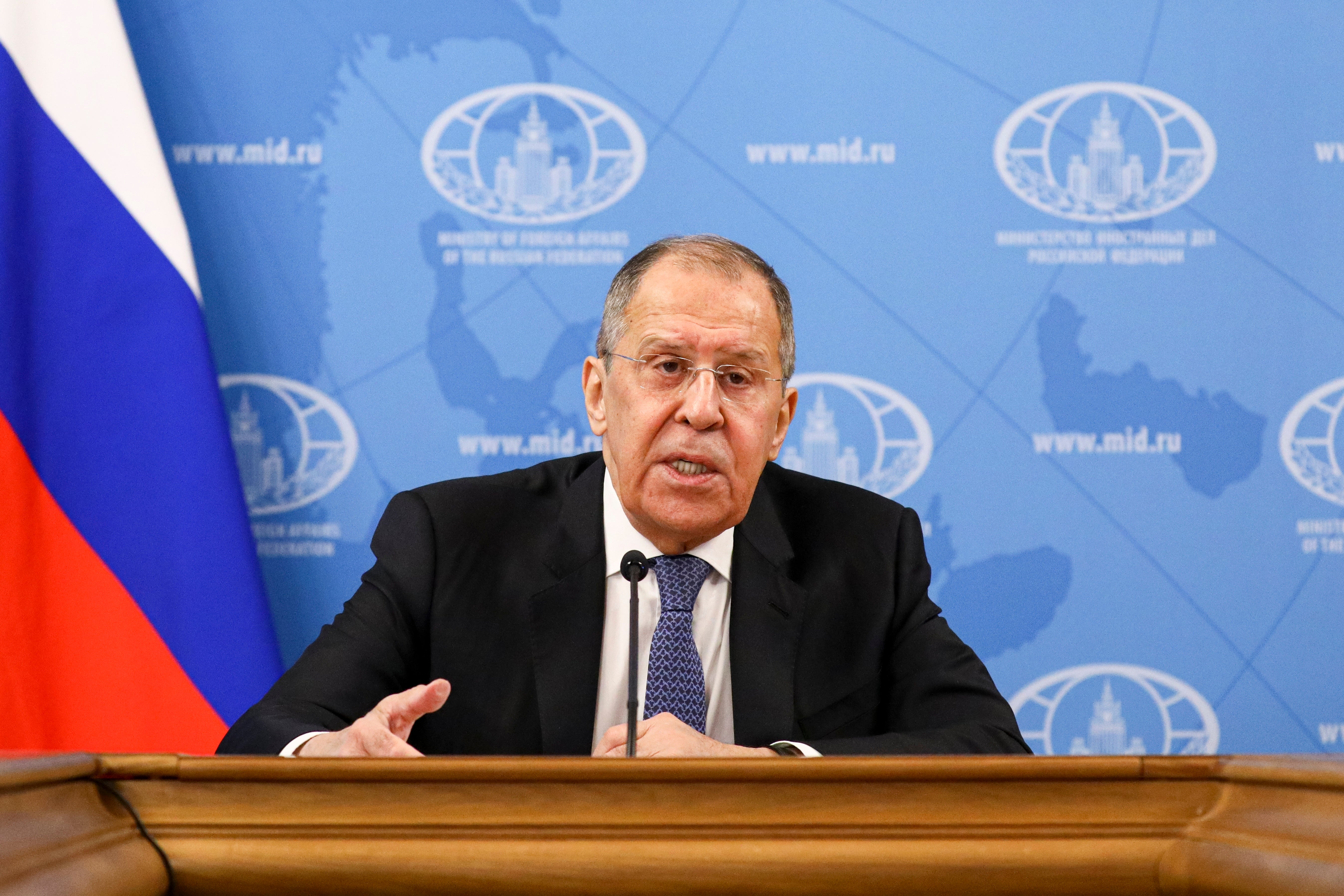Russia ready for quick extension of last arms pact with US
Russia's top diplomat says Moscow is ready for a quick deal with the incoming administration of U.S. President-elect Joe Biden to extend the last remaining arms control pact, which expires in just over two weeks

Moscow is ready for a quick deal with the incoming administration of U.S. President-elect Joe Biden to extend the last remaining arms control pact, which expires in just over two weeks, Russia s top diplomat said Monday.
Months of talks between Russia and President Donald Trump's administration on the possible extension of the New START treaty have failed to narrow their differences. The pact is set to expire on Feb. 5.
Biden has spoken in favor of the preservation of the New START treaty, which was negotiated during his tenure as U.S. vice president, and Russia has said it’s open for its quick and unconditional extension.
Russian Foreign Minister Sergey Lavrov said at a news conference Monday that Moscow is ready to move quickly to keep the pact alive.
“The most important priority is the absolutely abnormal situation in the sphere of arms control,” Lavrov said. “We have heard about the Biden administration’s intention to resume a dialogue on this issue and try to agree on the New START treaty's extension before it expires on Feb. 5. We are waiting for specific proposals, our stance is well-known."
New START envisages the possibility of its extension for another five years, and Russian President Vladimir Putin has said that Moscow is ready to do so without any conditions. The Kremlin also has voiced readiness to prolong the pact for a shorter term, as Trump's administration had pondered.
The talks on the treaty's extension have been clouded by tensions between Russia and the United States, which have been fueled by the Ukrainian crisis, Moscow's meddling in the 2016 U.S. presidential election and other irritants. Sunday's arrest of leading Putin critic Alexei Navalny in Moscow after his return from Germany where he was recovering from a nerve agent poisoning he blamed on the Kremlin will further cloud Russia-U.S. ties.
Biden’s pick for national security adviser, Jake Sullivan, called on Russian authorities to free Navalny.
“Mr. Navalny should be immediately released, and the perpetrators of the outrageous attack on his life must be held accountable,” Sullivan said in a tweet.
New START was signed in 2010 by U.S. President Barack Obama and Russian President Dmitry Medvedev. It limits each country to no more than 1,550 deployed nuclear warheads and 700 deployed missiles and bombers, and envisages sweeping on-site inspections to verify compliance.
Arms control advocates have strongly called for its preservation, warning that its expiration would remove any checks on U.S. and Russian nuclear forces, striking a blow to global stability.
In 2019, the U.S. and Russia both withdrew from the Intermediate-Range Nuclear Forces Treaty, which was signed in 1987 by U.S. President Ronald Reagan and Soviet leader Mikhail Gorbachev and banned land-based cruise and ballistic missiles with a range of 500 to 5,500 kilometers (310 to 3,410 miles).
And last week, Russia declared that it would follow the U.S. to pull out of the Open Skies Treaty allowing surveillance flights over military facilities to help build trust and transparency between Russia and the West.
Bookmark popover
Removed from bookmarks